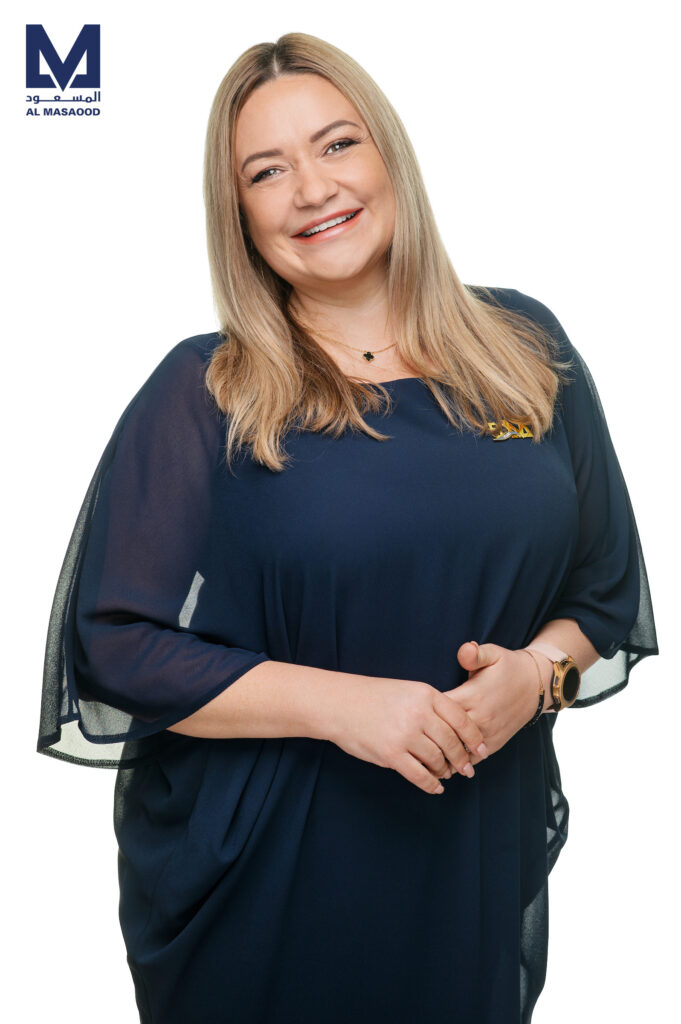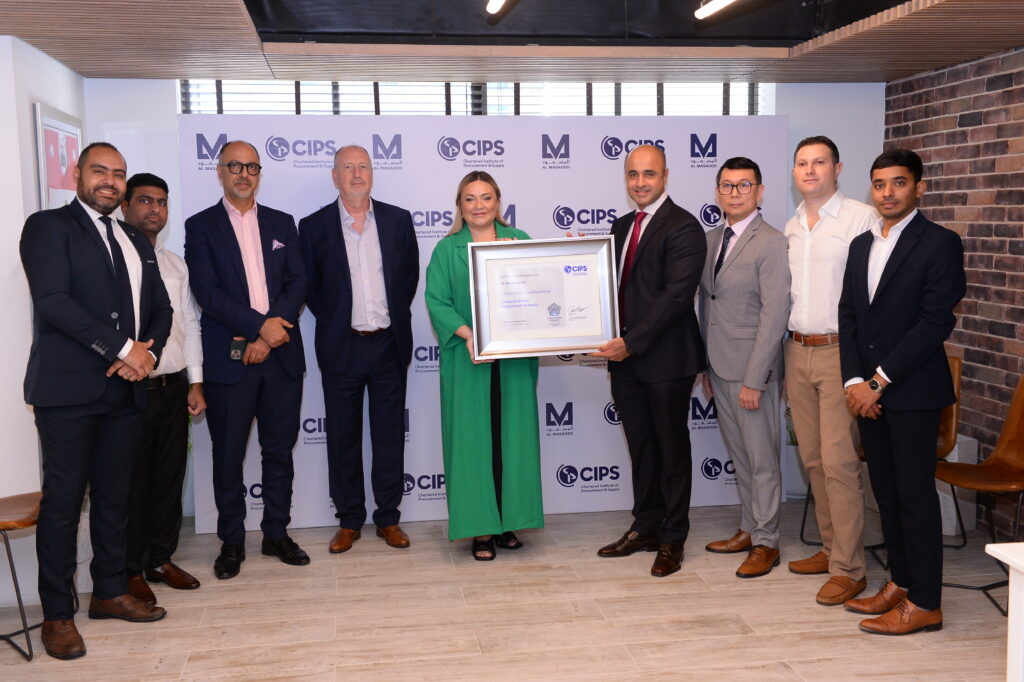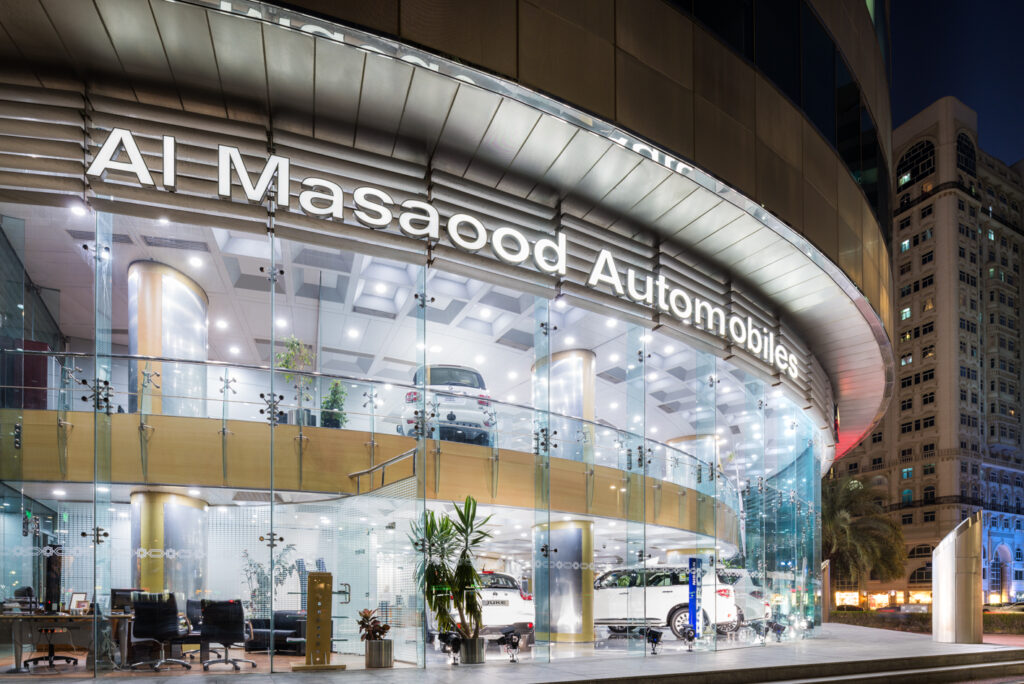Al Masaood Lays Out Its Transformation Plans to Build on an Already Established Legacy
Sofiya Poland is Al Masaood’s Head of Procurement – a title that takes on more than just one revenue stream or one sector. The nature of the Group’s cross-sector interests and multi-stakeholder involvement means that transformation has to be about more than technology. People, processes, sustainability and a whole lot more combined will dictate the future success of this prestigious Middle Eastern company.
Hi Sofiya. Al Masaood’s history goes back around 50 years from its origins as a humble trading house. How would you define its market and regional status in the present day?
Al Masaood is a privately held and highly diversified business Group based in Abu Dhabi; its numerous companies and partnerships spanning multiple market segments. Since those early days mentioned, the Group has grown to become one of the largest integrated industrial, commercial and services organisations in the United Arab Emirates.
In the present day, Al Masaood still represents the collective business interests of the Al Masaood family, in serving both public and private sectors. We do so through a philosophy to constantly strive for growth, excellence and customer satisfaction. Our business divisions deliver global brands and award-winning services to leading companies and public agencies in the UAE and Bahrain.
As a part of this philosophy, Al Masaood management has decided to enhance its core support services, including procurement. And, in April 2019, I joined the group to transform the procurement function from a tactical and administrative process, to a best-in-class procurement department practicing excellence and integrity in its support of a highly complex business structure. We have sought to deliver, through this effort, value-added services, tangible savings, positive bottom-line impacts, and a robust governance structure to ensure compliance, transparency and innovation in the future.
View the digital brochure version of this content below
Over the course of 50 years, any company would have faced some tough and diverse challenges. How have the past few years compared, and how important has it been to keep reinventing the Group despite its age and legacy?
Al Masaood’s legacy in Abu Dhabi echoes throughout the UAE, and as the nation undergoes its own transformation, we must do as well. Moreover, we must also be agile to respond to each respective transformation in every sector we operate.
For example, in the automotive vertical we are an exclusive dealer for many brands and have had to navigate inventory shortages, the rise of ecommerce, the surge in demand for EVs, and constantly new competition. We have to indulge and involve ourselves in these new streams too, as we’ve done with the EV market and our increasing online portfolio.
Then, on the industrial front, we are working hard to get ahead of the curve when it comes to sustainability, to become a market-leading net-zero aspirer and ESG pioneer.
Of course, with each new product, service and transformation we require greater resources and new skills. And procurement has played a vital role in that process too, as we seek greater agility and resiliency to varying market trends. That being said, the skills challenge and ‘the great resignation’ has been particularly challenging, largely because millennials see these industrial settings as quite archaic.
The responsibility is on us to prove this is not the case, and to adapt where possible.
When trying to encourage such complex transformation, how much emphasis do you place on the mindset of the Group and your procurement team?
I’m not a person who sits comfortably just working the way that has always been done in the past. I encourage my team to be agile and to think forward. However, it is not my personality that is driving change necessarily – it is the ecosystem we operate in that is so demanding that it drives this need for flexibility, and an appetite for risk.
Within procurement specifically, employee mindset is very important, as it is those people who are the unseen heroes of the company. They’re sometimes easy to overlook but they’re on the frontlines every day, working in one of the quickest-changing functions of an organisation. Yes, we’re undergoing a digital transformation, but there are still those who buckle up their boots everyday and give their best in a very manual and intense way.
So, reading between the lines, it’s about ensuring these new technologies and existing people work harmoniously together?
Like others, we’re dealing with a rapid adoption of technological advancements and I’m tasked with putting in place the appropriate structures and culture to keep stakeholders happy, while also getting the best out of a satisfied workforce… a workforce that can perform its duties to a high standard, but that can also have their voices heard when needed.
This all fits within a dedicated best procurement practice strategy across the Group’s verticals. Using Chartered Institute of Procurement & Supply (CIPS) guidelines, the team is sustainably delivering key procurement performance across metrics including cost minimization, sustainability, strategic sourcing, contract management, risk management and supplier relationship management (SRM).

To that end, what have been the main transformations enacted across procurement in recent years?
Al Masaood Procurement has undergone numerous changes in terms of people, processes and systems over the past four years. The team has grown from a small tactical organisation of five people in 2019 that was responsible for transactional tasks like converting PRs into POs; to a team of 15 procurement professionals who are in charge of various streams as part of a hybrid structure. Al Masaood’s hybrid model of centralised procurement performs admirably in delivering value to the organisation’s stakeholders at every stage, thanks to the engagement of committed business partners.
From a tech perspective, although many individuals might disagree, I think the COVIDD era was a disguised gift. It encouraged a lot of businesses who were hesitant to digitally transform, to rethink their processes. For us, it meant switching from a procure to pay (P2P) process that was entirely paper-based, to one that is now entirely online. Online approvals have been introduced, and in collaboration with IT and finance, we have developed a data management strategy to maintain records and data in a secure and open manner. In addition, a very complex procurement dashboard was introduced for the executive committee and higher management’s monthly procurement reports.
ERP is another particular area of progression into 2023 as we continue to move at a pace that keeps up with the wider industry, without negatively impacting existing operations and employees. This evolution is as much about preparing people for the change, as it is the actual investments.
How would you assess Al Masaood’s digital status at the beginning of this year?
We now have a variety of powerful platforms and software in place for use across various business requirements; including HRMS, DMS, leasing, property, P2P and much more. Many of these platforms are best-in-class and all are scalable based on our own expansion plans. ERP would fall in the category of a process still in the process of being digitised, to show that the continuous improvement never ends.
In collaboration with a consultant, we have mapped the overall architecture of our business to see where gaps exist and where technology could enhance in line with future demands and industry trends. Based on the findings of this mapping and study, a tender was released at the end of 2022 and we are currently evaluating worthwhile solutions in preparation for the 2023 stage of our digital transformation journey.
How has the company’s workforce responded to these ongoing changes?
Digitalisation is accelerating in most corners of industry, so it’s no shock to employees that they need to be adaptable and open-minded to new ideas around efficiency and streamlining. They need to not only use these new technologies but learn from interactions and change their behaviours to get the best out of them each and every day.
It is my role to motivate my team in this way, concentrating on their training and development so they are better equipped to perform in their current roles; and in their future careers. Even right now, seven people are undergoing CIPS Level 4 exams, and two have already achieved this level and will be pursuing the next level this year. Beyond that, I’m planning to enrol junior staff for CIPS Level 2 this year, so the entire team has a more thorough understanding of procurement best practices and the new tech we’re bringing into the organisation.
A good sign of this effort being successful already is the Al Masaood procurement team being awarded the corporate ethics mark by CIPS – a highly regarded certification after we passed tests in relation to areas of fraud, corruption, bribery and the environment across the supply chain.
This award demonstrates our dedication to professional conduct, integrity and morality; and I am so proud to see the Al Masaood name mentioned alongside these attributes.

Looking ahead to the rest of 2023 and beyond, what is your vision for how you want Al Masaood’s procurement function to evolve further?
More generally, procurement needs to transition from being a cost-cutting and regulatory function to being a customer-centric and business-enabling role that is agile enough to adapt to a world that is perpetually changing.
In this respect, greater strategic responsibility for procurement needs to be assumed – it needs to be at the centre of organisational strategy and future goal-setting. Our best practice approach has already kickstarted this process of integration, but transformation doesn’t always mean ‘digital transformation’. I am similarly aware that the team must also develop its non-technical skills, including stakeholder management, SRM, consultative work, initiative taking and project management.
Therefore, looking forward, we are striving to maximise connections with third parties, to innovate, to integrate, to cooperate, and to make the best of our large pool of data to optimise business decisions.
As a final question, I wondered if you could reflect on your own journey with such a prestigious organisation? What are you most excited about in the future?
I am thrilled to be a part of the Al Masaood Group’s transformation journey, and in particular the transformation of the procurement team. Although the past few years have been disruptive and uncertain, we have persisted and, in spite of the challenges, have evolved into a larger, stronger team that will work with the company to support its growth and new revenue streams. My emphasis will continue to be on people and their growth since I think that people are our greatest and most valuable asset.
As a personal focus and priority, I will keep advancing my team’s and my own knowledge of sustainability. Contributing to the company’s ESG performance is so necessary from a business perspective of course, but it also strongly aligns with my own beliefs.
All of these priorities are interconnected. The new and exciting path of the organisation’s digital transformation will encourage the team to pick up new skills across all different strands of a futureproofed business. Whether it’s sustainability, data management, process alignment, communications or any number of continuous improvement areas, procurement has the potential to help set an example for positive business change.

